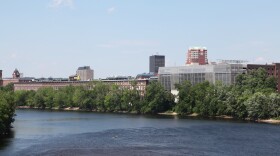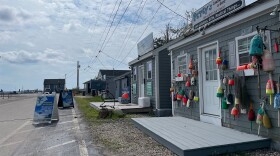New Hampshire and New England have been firmly on the local and sustainable food bandwagon for years now, and although Granite Staters are also enthusiastic consumers of seafood, it hasn't been until recently that some in the state have tried to bring that local sensibility to the fish they eat.
The idea is that locally caught fish are sold at local cooperatives and weekly fish-shares, and through better marketing of lesser-known fish, such as Dogfish, Monkfish, and Hake. Many say this effort comes none too soon with the mounting crisis in New Hampshire's commercial fishing industry. As fisherman face ever-stricter catch limits for species like cod, some see this more local approach as part of the solution for how to preserve commercial fishing, and fisheries in the Granite State.
GUESTS:
- Gabriela Bradt - commercial fisheries specialist at NH Sea Grant and UNH Cooperative Extension, focusing on direct marketing of seafood
- Erik Chapman – commercial fisheries specialist at NH Sea Grant and UNH Cooperative Extension, focusing on fishing gear technology
- David Goethel – longtime New Hampshire fisherman, with a boat based out of Hampton. He has also worked as a research biologist, and has served on several state and federal fishery management boards. He sells through the Yankee Fisherman's Cooperative.
- Andrea Tomlinson – general manager of New Hampshire Community Seafood, which operates the state’s only Community-Supported Seafood program.
*Correction: wolffish are not plentiful, but scarce and not fished commercially in New England
Read more:
- A guide to N.H. fish, including pictures of the different species
- N.H. Sea Grant's blog about sustainable marine fisheries in N.H.
- Local Fish Finder New Hampshire: an app that shows where to find the freshest New Hampshire seafood, whether right off the boat, at a local market, or in a neighborhood restaurant








